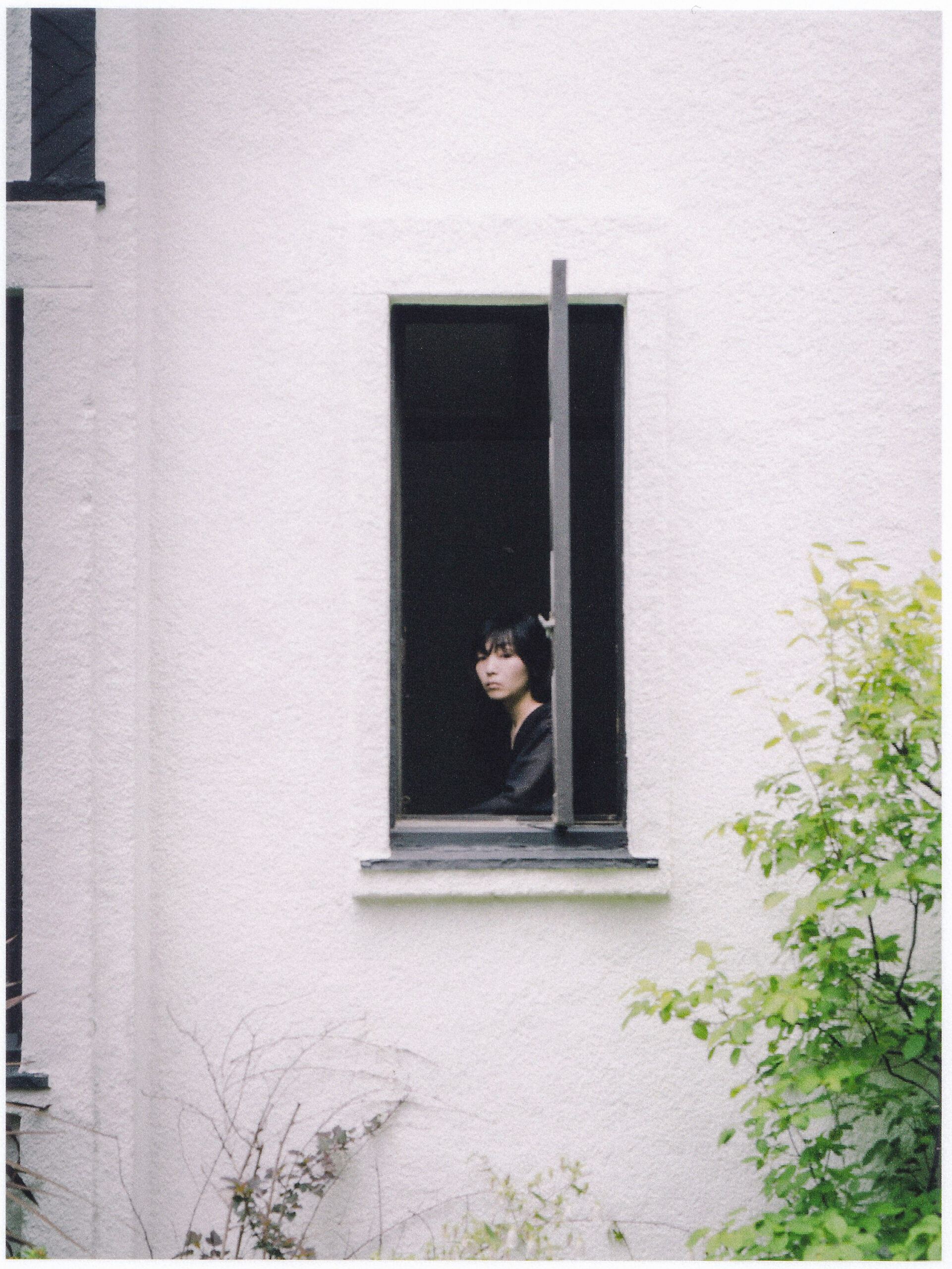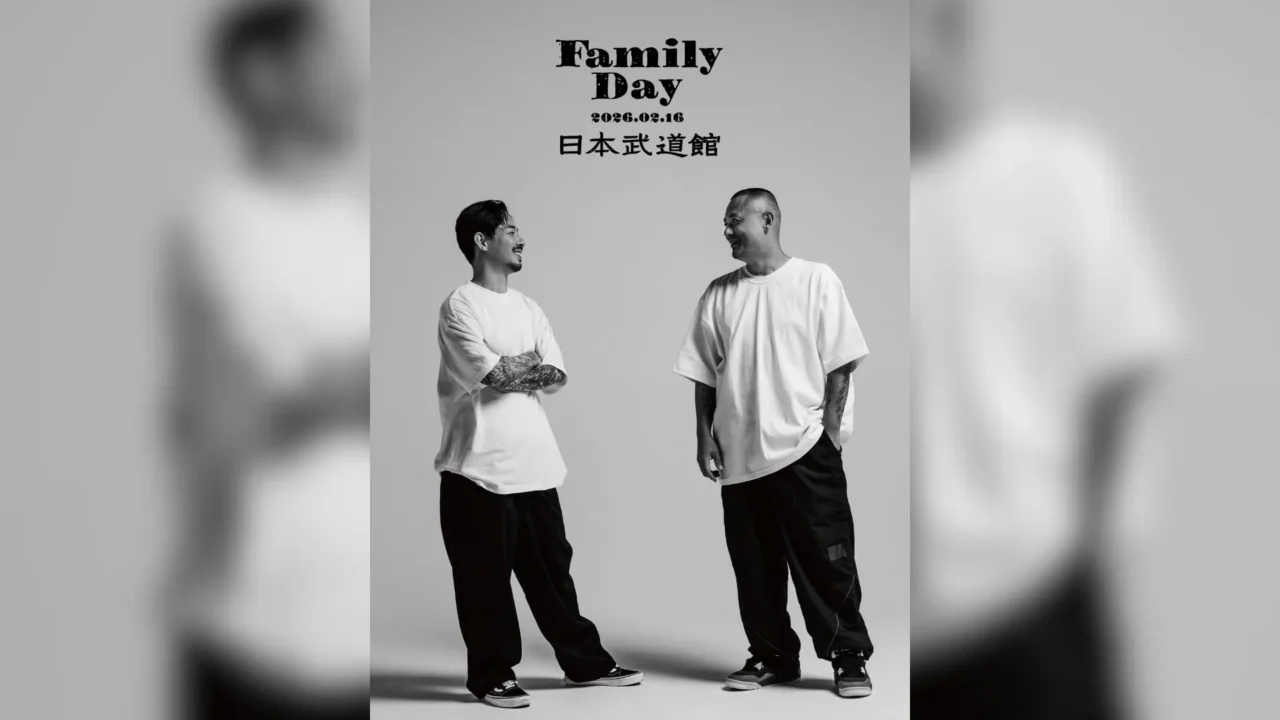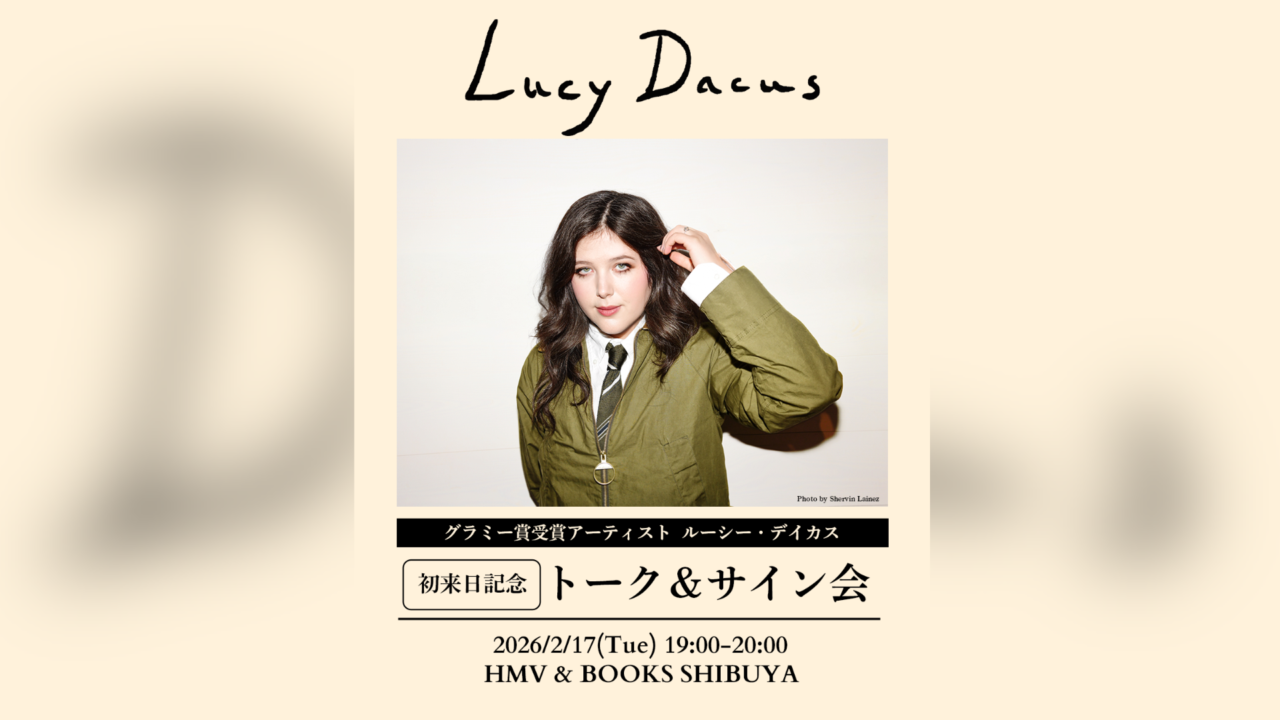Five years after her previous album, Ampelsands (2020), mei ehara returns with her third release, All About McGuffin, which she describes as “the final work of the first chapter.” The album carries a sense of duality: what she holds close now, what she has lost or let go in the past — everything matters, yet everything is replaceable. It is a record of her journey, marked by pain and uncertainty, and at the same time, a story for all of us living in the same era.
Over the past five years, mei ehara has confronted her inner world deeply, learning to distinguish between what she can let go of and what she cannot. Now, she says, she is “living entirely for herself.” Speaking with her during her first headline tour in the United States, she shared the mindset behind All About McGuffin—a work that is at once a singular narrative, a fantasy, an RPG-like adventure, and a raw, intimate chronicle—and reflected on her ever-evolving “now.”
INDEX
A Sense of Realization, Not Transformation
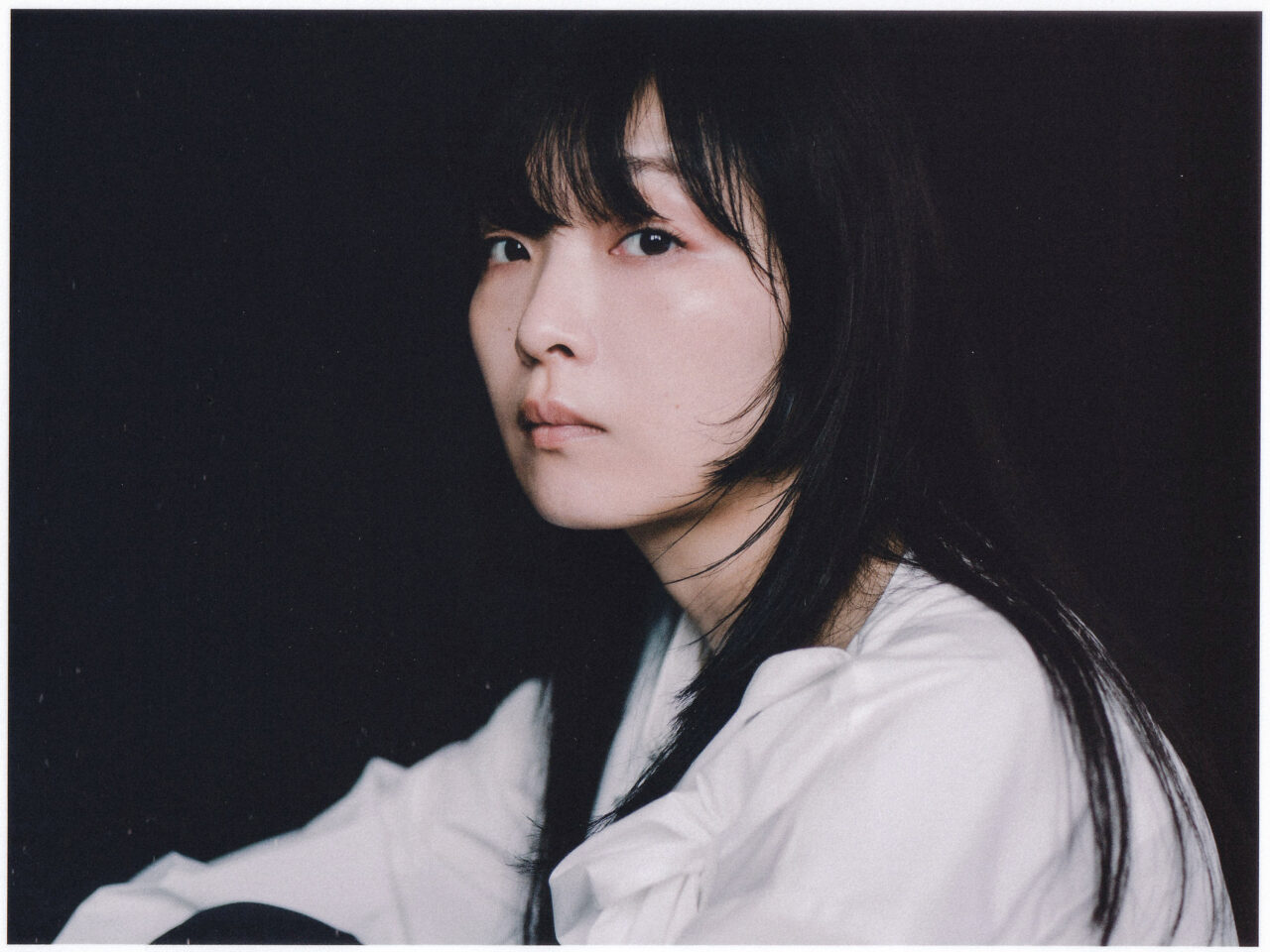
Singer-songwriter / Writer. She began recording music at home during her student years and debuted in 2017 with her first album, Sway, produced by Gohei Tsujimura of Kicell, released on Kakubarhythm. In 2020, she released her self-produced second album, Ampersands. She contributed to American singer-songwriter Faye Webster’s 2021 album, I Know I’m Funny Haha, and joined Webster’s U.S. tours in 2024 and 2025 as a supporting act. In September 2025, mei ehara released her first full-length album in five years, All About McGuffin, followed by a tour across four U.S. cities. She will hold a solo live performance at WWW X on October 19 after returning to Japan.
(Photo: Naoki Usuda)
So right now, you’re in the middle of your headline tour across San Francisco, Los Angeles, New York, and Chicago (September 23–30), with most shows sold out?
ehara: Yes, that’s right. My previous two tours were as the opening act for singer-songwriter Faye Webster, and she had often mentioned that she liked my music. Because of that, it felt like the audiences were already welcoming me. So I approached it wanting to support Faye’s tour and make it the best experience possible for everyone.
ehara:But this time, it’s mostly people coming specifically to see me, so I was honestly a little anxious about how they would react. I still don’t fully understand what it is about my music, singing in Japanese, that resonates with them. That said, I just finished the shows in San Francisco and Los Angeles, and when I actually performed, it turned out that everyone was genuinely looking forward to seeing my live performance. They were listening closely and really watching, which was such a relief.
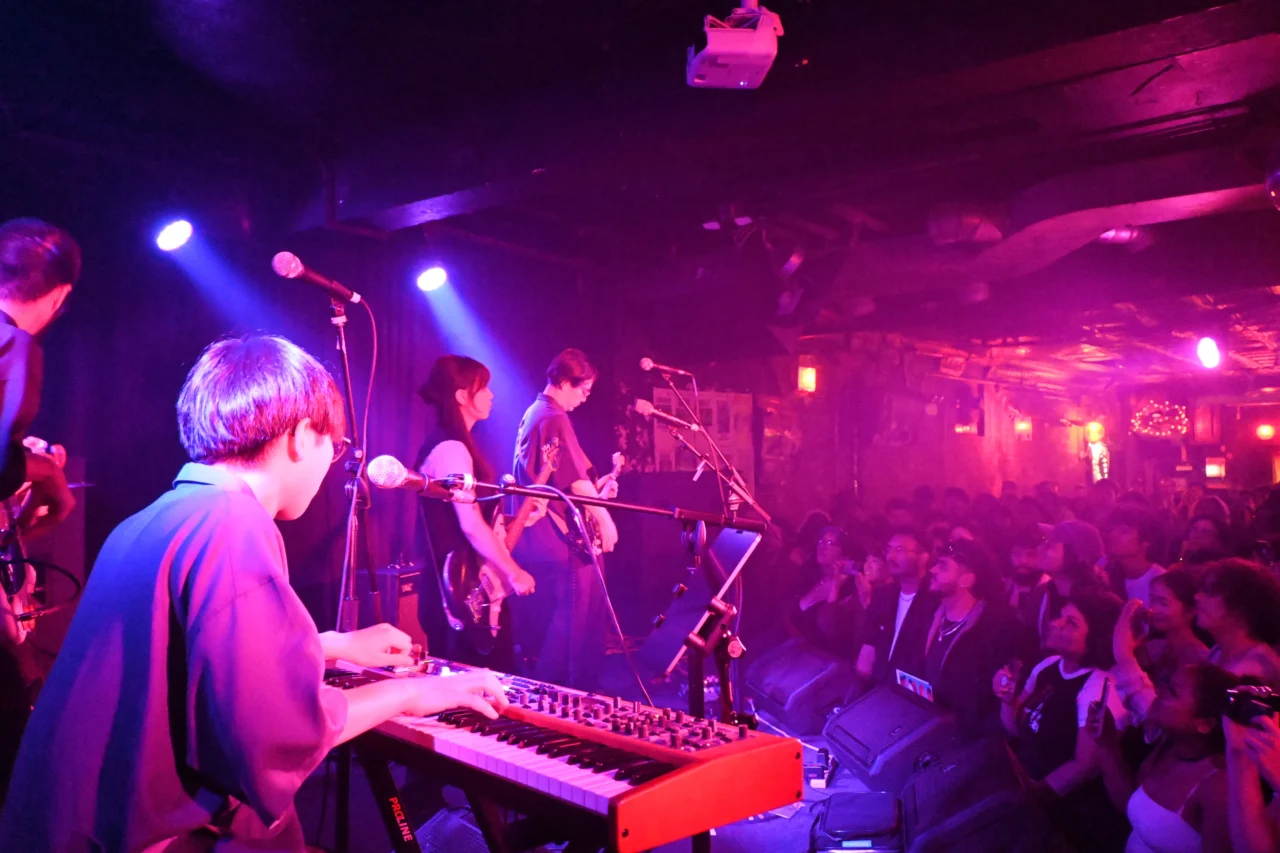
Has performing and creating music in the U.S. changed you in any way?
ehara: Honestly, I never imagined I’d have a life where I’d perform live overseas… So it’s not so much a sudden, eye-opening change as it is realizing things I simply didn’t know before. For example, the way people think about sound in America versus Japan, or how different a place and environment can make things—it made me realize my perspective had been pretty narrow.
If I had to say, I used to want to record songs with the same set of members for as long as possible. But now, I feel it might be good to try working with a wider variety of people. For example, bringing in a different producer for each track, performing songs that I wouldn’t write myself but are offered to me, or collaborating with other musicians—things like that are worth exploring.
INDEX
After the Last Release: Finding Solace Amid the Pandemic
You released your first album in five years, All About McGuffin, this September. You’ve said that you approached this album as “the final work of the first chapter” for yourself.
ehara: That ties back to what I mentioned earlier. In terms of how the songs were created, this album isn’t drastically different from my previous work. Of course, there are new elements and I experimented with some new directions, but basically, it feels like a continuation from my first album, Sway (2017). I don’t know exactly how it will turn out, but I had a feeling that my next work would bring a big change, so I wanted to mark a pause here with this album. I decided to make it one where I could pack in everything I wanted to do.
You’ve mentioned that the past five years leading up to this album involved various struggles.
ehara: Yes. My second album, Ampersands (2020), was released right in the middle of the pandemic, so I never really knew how listeners received it. I had joined a label, quit my job to focus entirely on music, and created it with a new band lineup… and yet, the outcome felt uncertain. It didn’t make me lose motivation, but it did leave me unsure of how to approach my next album.
ehara: When you’re making music, it’s hard to say you have much financial stability. During the pandemic, I became distant from a lot of people and stopped seeing them altogether. There were also many things happening in my personal life, so I naturally ended up spending a lot of time reflecting on myself. I wanted to understand the root of why I fall into certain ways of thinking, so I started going to counseling and reading books, continuing to study and learn on my own. Then, around July last year, suddenly, a lot of things just clicked.
Looking back now, I’m not entirely sure why it was necessary to face myself so deeply at that particular time. But at the moment, I just felt, “If I don’t resolve this now, I won’t be able to move forward.”
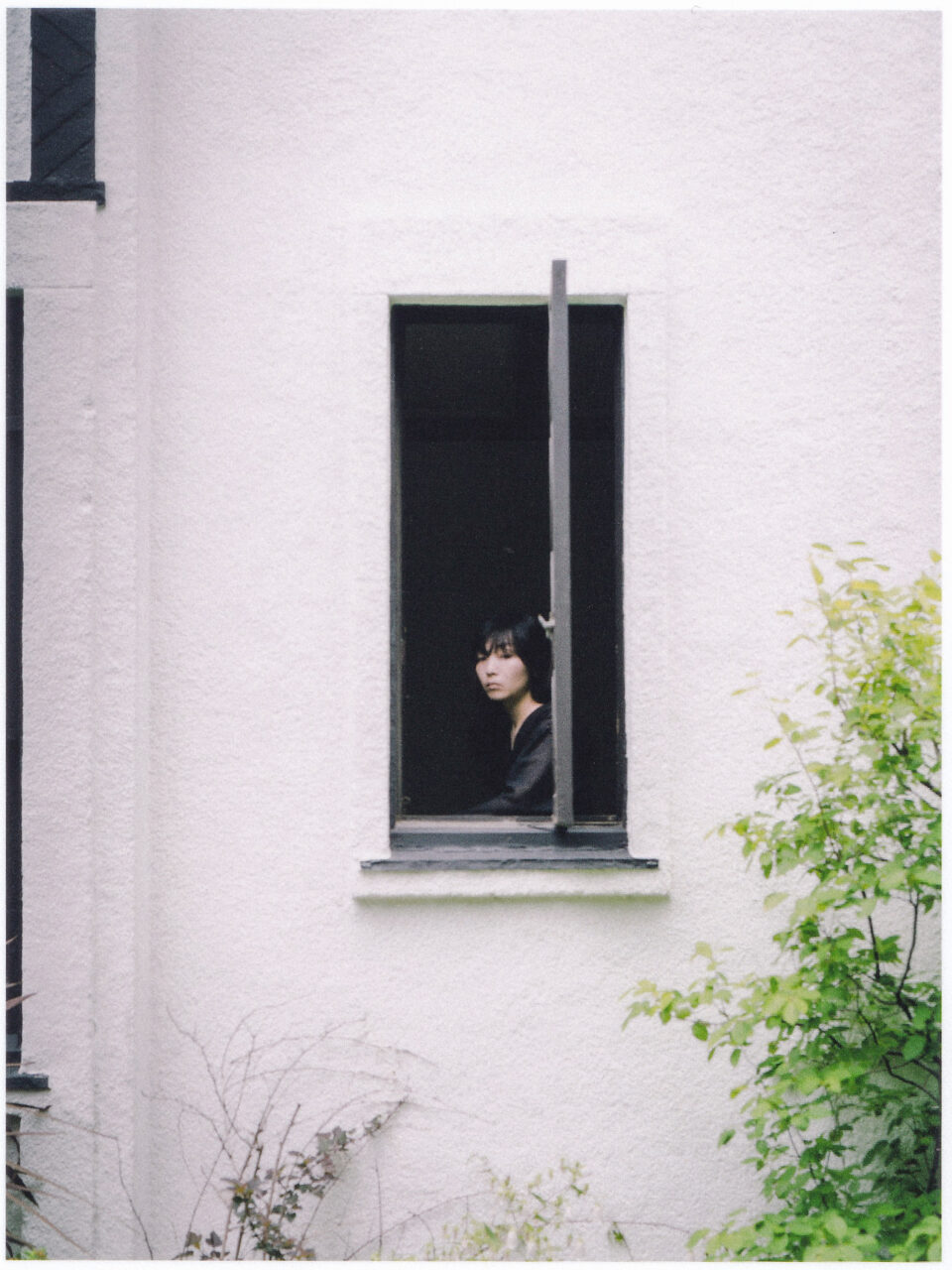
Was there a specific event that changed you?
ehara: I wouldn’t say I suddenly found a “solution” or the “right answer.” It feels more accurate to say that I’ve learned to let go. Not getting caught up in endless worries or dwelling on things has allowed me to focus purely on music. Right now, I feel like I can live entirely for myself. I’ve learned to let go when I need to, but at the same time, I can also hold my ground when something truly matters to me.
How do you think this shift in mindset is reflected in your new album? You wrote in your release notes that “simplicity is a very romantic thing.” What did you mean by that?
ehara: That’s not something I specifically realized while making this album, but I’ve always felt there’s something really appealing about being a little unpolished or imperfect. Everyone—including myself—has parts that are incomplete or not fully matured. You see that in films too, where the protagonist is still figuring things out. Struggling, worrying, or stumbling through life is something anyone can relate to—and I think it’s also something deeply endearing.



